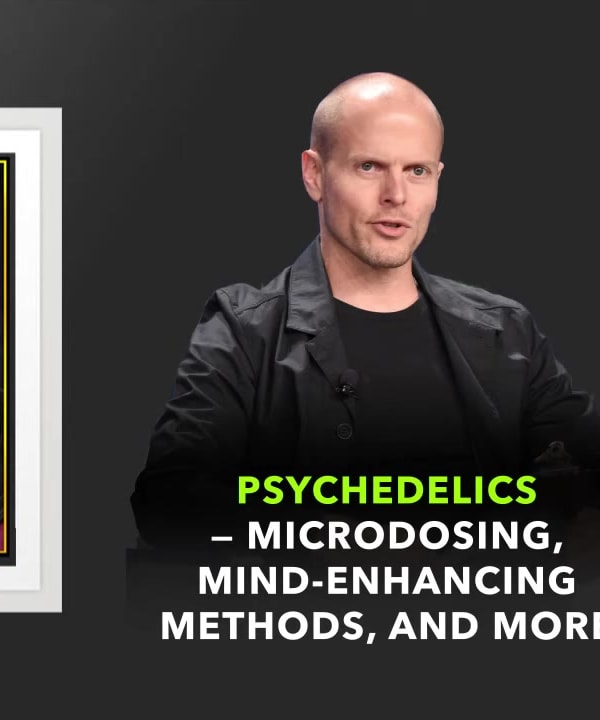Mind-altering drugs
Sources:
Tim Ferriss has had extensive discussions on mind-altering drugs, particularly focusing on psychedelics and their therapeutic potential. Here are some key points from those conversations:
-
Therapeutic Potential:
- MDMA and PTSD: MDMA has been granted Breakthrough Therapy designation by the FDA to expedite phase three trials for PTSD. Ferriss emphasizes MDMA's ability to reduce fear response, helping people with traumatic experiences heal through nonverbal ways 1 2.
- Psilocybin in Depression and Anxiety: Psilocybin shows promise in treating depression, anxiety, and psychiatric distress associated with life-threatening illnesses. Ferriss and his guests acknowledge the transformative impact of such therapies, despite them being controlled substances 2 3.
-
Safety and Addiction:
- Ferriss notes that classical psychedelics like LSD and psilocybin are not typically addictive. Unlike substances such as cocaine, which rats will self-administer to the point of death, psychedelics do not cause a similar compulsion. Users often require significant time to process their experiences before desiring to take them again 2.
-
Historical and Societal Impact:
- Ferriss and his guests discuss the impact of the 1960s on modern perceptions of psychedelics. The counterculture movement and subsequent legislative backlash led to the Controlled Substances Act, which clamped down on drugs associated with the counterculture, thus limiting their medical use despite potential benefits 4 5.
- Psychedelics have the potential to foster broader societal changes by addressing environmental consciousness and reducing tribalism, which are considered significant modern challenges. This transformation stems from the ego dissolution and connectivity experiences facilitated by these substances 5.
-
Ongoing Research:
- Ferriss highlights ongoing studies examining the effects of psychedelics on various conditions. Research at institutes like Johns Hopkins continues to explore their efficacy for depression, anxiety, and addiction, while also examining their potential neurogenesis effects in conditions like Alzheimer's 5 6.
-
Religious and Mystical Experiences:
- Hallucinogens can induce profound religious and mystical experiences, which Ferriss and Jordan Peterson discuss as revealing deeper aspects of reality. Psychedelics might play a role in exploring the narrative and meaningful aspects of existence, potentially changing one's worldview profoundly 7.
For further insights, you may want to dive into specific episodes of the , where these topics are elaborately discussed.
RELATED QUESTIONS-






